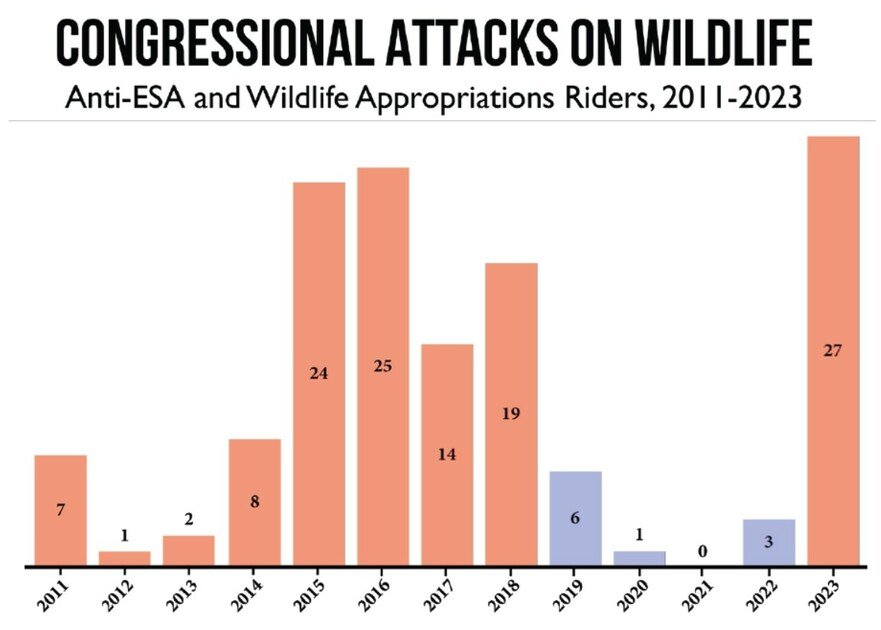
WASHINGTON— Led almost entirely by Republicans in the U.S. House of Representatives, the fiscal year 2024 appropriations bills contain the largest number of anti-wildlife poison pill riders in the 50-year history of the Endangered Species Act, according to a report published today by the Center for Biological Diversity.
The report, Paving the Road to Extinction found at least 27 separate attacks on endangered species in the bills. Among the report’s key findings:
- 26 of the 27 attacks were introduced by Republican members of Congress.
- One of the attacks was introduced by Senate Democrats as part of an agreement to maintain “legacy” anti-environmental riders.
- Rice’s whales and North Atlantic right whales — two of the world’s most endangered whales — were targeted six times, more than any other species.
- 17 riders — or over 60% — target specific species, many of which, including lesser prairie chickens and dunes sagebrush lizards, have been waiting decades for protection.
“Republicans have weaponized the appropriations process to launch a full-blown assault on our natural heritage,” said Stephanie Kurose, a senior policy specialist at the Center. “These heartless attacks would strip away lifesaving protections from our most imperiled creatures — from wolves to whales to freshwater mussels. If passed, these bills would put multiple species on a direct path to extinction.”
The report highlights how the Endangered Species Act continues to be a top target for anti-environmental members of Congress, with the number of attacks in appropriations bills and the number of legislative attacks more broadly increasing under Republican control.
Historically the majority of riders have not been enacted into law. However, a few have slipped through the cracks. In 2011 a Republican-controlled Congress passed a rider that legislatively delisted gray wolves in the northern Rockies. The premature loss of federal protection led to the merciless killing of wolves in northern Rockies states.
Most recently, as part of a backroom political deal in December 2022, Congress passed a rider that delays conservation actions that are essential to preventing fishing gear from killing and entangling critically endangered North Atlantic right whales, putting the iconic animals on a likely irreversible path toward extinction.
“With each successful rider, we’re losing our ability to end extinction in the United States,” said Kurose. “These attacks are deeply unpopular with the American public, who want to see our natural heritage protected for future generations to come.”
